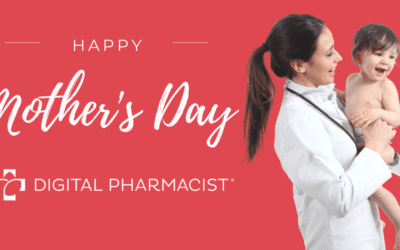Cancer is currently the second leading cause of death in the United States, and risk factors for cancer continue to rise. With that being said, increasing awareness, practicing prevention, and providing proper treatments and symptom management is crucial to better counsel patients with cancer.
New cancer cases diagnosed annually in US
Cancer deaths in US in 2022
As many community pharmacies are taking on a more patient-centered approach in recent years, pharmacists have an opportunity to better incorporate cancer management initiatives into their practice. There are numerous opportunities for pharmacists to intervene, from education and counseling to treatment and dose recommendations to providers. While not a comprehensive list, the following outlines different ways pharmacists can better care for patients with cancer.
1) Provide Proper Pain Management
One of the most common symptoms patients with cancer deal with is pain. This pain can be either acute or chronic and result from either cancer itself, or secondary to treatment or procedures. Pharmacists can help in improving patients’ pain management understanding by assisting in mitigating the adverse effects of pain medications and by communicating efficiently with providers.
Pharmacists can play a role in cancer-related pain by assessing the pain experienced by the patient. Per the National Comprehensive Cancer Network (NCCN) guidelines, medication choice is dependent on severity– with milder symptoms treated with NSAIDs first-line and more severe pain treated with opioids first-line. If a patient’s current routine is inadequate for their pain, the pharmacist can recommend an alternative routine, converting to a different medication.
Pain management does come with adverse effects, opening another opportunity for intervention. Opioid-induced constipation is a common adverse effect, and the pharmacist can make sure the patient is on an adequate bowel regime to prevent this issue.
2) Offer Nutrient Depletion Counseling
Nutrition is important to counsel patients with cancer on throughout the course of their treatments. Up to 25% of all cancer patients experience a loss of appetite and cachexia, a wasting syndrome, is estimated to be the cause of death in up to 40% of this population.
As the most accessible healthcare provider, pharmacists are in a good position to provide patients with nutrient depletion counseling, which could be particularly beneficial to patients with cancer. While encouraging patients to meet with a dietitian, pharmacists can address certain things such as hydration, signs of dehydration, and dietary protein and fats.
One adverse effect of cancer treatment can be oral lesions known as mucositis, making it difficult for patients to eat or drink. Pharmacists can help mitigate this by offering ways to prevent mucositis from occurring. This can include treatment-specific (dexamethasone mouth rinse for MTOR inhibitors) or general non-pharmacological interventions (proper oral hygiene and baking soda and water rinses).
3) Counsel Patients with Cancer on OTC Medications
As the number of new cancer diagnoses is rising, pharmacists should note that OTC medication usage will also increase and be prepared to counsel effectively on OTC medications. Some medications commonly used by patients with cancer include antihistamines, laxatives, vitamins, nutrition supplements, and analgesics.
As the prevalence of cancer is continuing to increase, the role of the pharmacist becomes more important to help prevent any drug-drug interactions between these medications and chemotherapy and counseling patients on the proper use and appropriateness of certain OTC products.
4) Encourage Routine Vaccinations
As patients with cancer have impaired immunity function, it is very important to prevent infections, as infections in this patient population often resulted in increased morbidity and mortality. Although vaccinations can be used to prevent infection, providers must be aware of the vaccinations given to these patients, as live-virus vaccinations may result in the unchecked growth of strains. Many times, pharmacists are the health care professionals giving vaccinations, so it is very important that they know the medical history of the patients they are vaccinating.
Vaccinations can be given before, during, and after chemotherapy. Before chemotherapy, all indicated vaccines should be given to the patient. During chemotherapy, inactivated vaccines should generally be avoided as they may be less effective; however, all live-virus vaccines should be avoided. After chemotherapy completion, vaccines should be delayed depending on the cancer type.
Patients with cancer already have many appointments to schedule and attend, so it is important to make scheduling vaccinations as easy as possible. Offering a vaccination scheduler on your pharmacy’s website takes the ease off of trying to plan ahead for their vaccinations and allows them to schedule appointments at their own convenience.
While important for patients with cancer, it is also strongly recommended for family members to stay up-to-date on vaccinations to help prevent infection from transmitting to the patient.
5) Help Maintain Medication Adherence:
Pharmacists can play another role in adherence to medications, as this is important in achieving positive outcomes in all disease states, not just cancers. Nevertheless, adherence is very important in patients with cancer with failure to adhere leading to the progression of cancer and, ultimately, death.
There are many ways that pharmacists can improve adherence among patients. These include text reminders about pick-ups or refills, automated calls to achieve the same purpose, and easy appointment scheduling. All of this is made easy by our suite of products with our Patient Engagement Platform and Vow IVR functionalities. Through this, pharmacists can engage in two-way communication with patients which builds trust and might make patients more inclined to adhere to their therapy.
Further, pharmacists can help identify barriers to adherence and make suggestions to the patient to address these. For example, if the patient is worried about certain adverse effects, the pharmacist can identify ways to mitigate and possibly prevent certain adverse effects from occurring.
Resources:
- https://www.pharmacytimes.com/view/8-things-a-pharmacist-should-know-to-counsel-patients-with-cancer–
- https://www.cancer.org/research/cancer-facts-statistics/all-cancer-facts-figures/cancer-facts-figures-2022.html
- https://www.cdc.gov/nchs/fastats/deaths.htm
- https://www-uptodate-com.proxy.hsl.ucdenver.edu/contents/immunizations-in-adults-with-cancer?search=immunizations%20in%20adults%20with%20cancer&source=search_result&selectedTitle=1~150&usage_type=default&display_rank=1
- https://jons-online.com/special-issues-and-supplements/2019/best-practices-in-hematologic-malignancies-december-2019-vol-10/2729-the-importance-of-medication-adherence-in-patients-with-chronic-hematologic-malignancies


